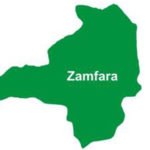The United Nations General Assembly held an election to appoint 15 new member countries to serve on the Human Rights Council. Four of the newly elected members come from African nations, including Burundi, Côte d’Ivoire, Ghana, and Malawi.
After the ballots were cast and counted, Assembly President Dennis Francis announced the names of the new members, who will begin their three-year term on January 1, 2024.
Notably, China, Côte d’Ivoire, Cuba, France, and Malawi secured re-election for their second terms.
The Human Rights Council is a crucial United Nations body responsible for promoting and protecting fundamental human rights worldwide.
Established in 2006, it comprises 47 member states, chosen through a secret ballot by a majority of General Assembly members.
To ensure a fair distribution of seats across geographical regions, the Council allocates its seats to regional groups of states.
There are 13 seats for African States, 13 for Asia-Pacific States, 6 for Eastern European States, 8 for Latin American and Caribbean States, and 7 for Western European and other States.
During the election, Malawi received the most votes among African nations with 182 votes, followed by Côte d’Ivoire (181), Ghana (179), Burundi (168), and Nigeria (3).
In Asia and the Pacific, Indonesia secured 186 votes, followed by Kuwait (183), Japan (175), and China (154).
For Eastern Europe, Bulgaria received 160 votes, followed by Albania (123), and Russia (83).
Russia sought re-election to the Human Rights Council after its resignation from the body on April 7, 2022.
In Latin America and the Caribbean, Cuba received 146 votes, followed by Brazil (144), the Dominican Republic (137), and Peru (108).
This marked the first time the Dominican Republic was elected to the Human Rights Council.
In the Western European and other category, the Netherlands received 169 votes, and France received 153 votes.
These new members will join the current members of the Human Rights Council, and their term will commence on January 1, 2024, playing a critical role in advancing and safeguarding human rights on the global stage.











